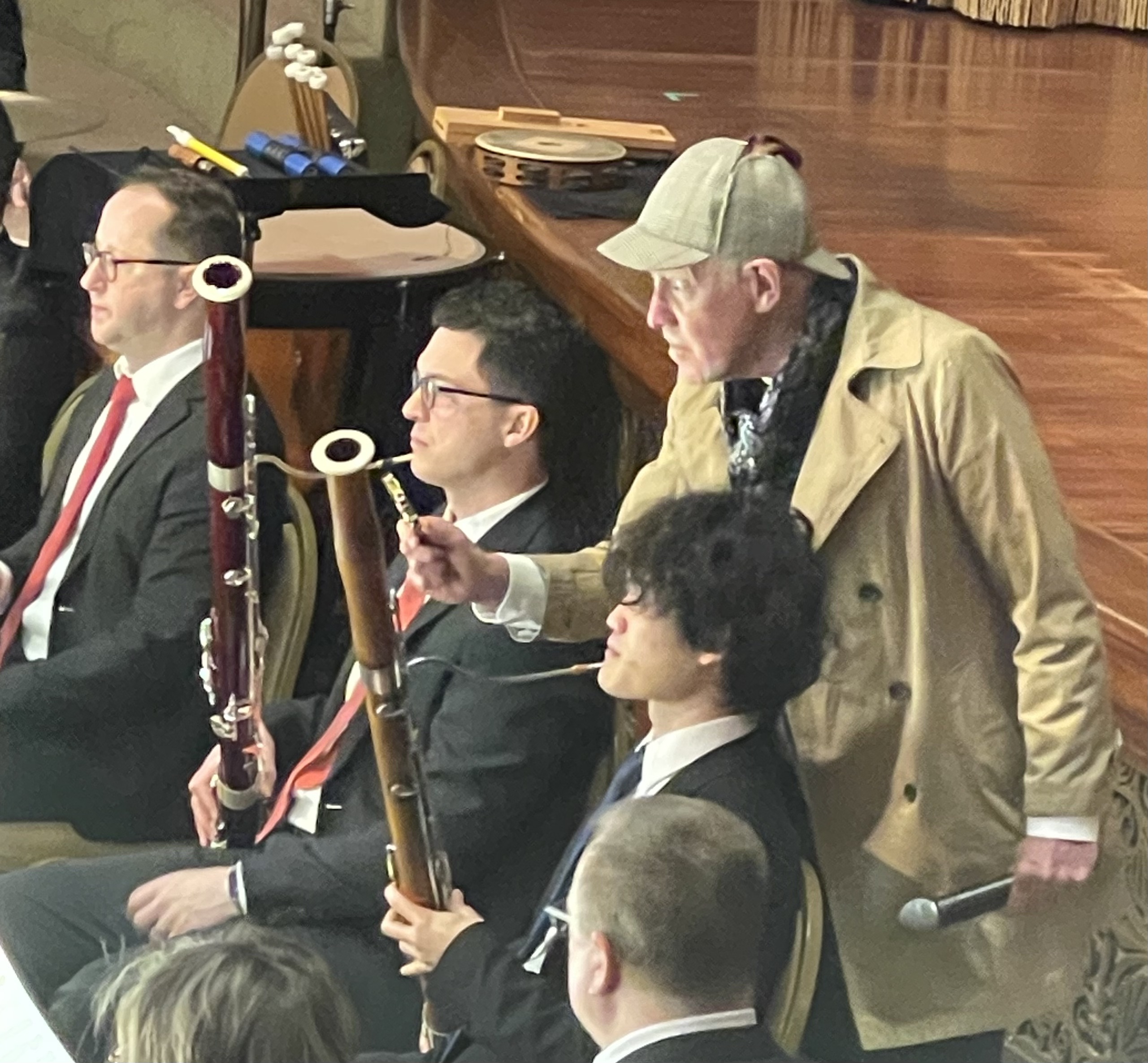Thursday, February 8, 2024
Oh no, the maestro is missing. What to do?
The Alexandria Symphony held its first family concert on Sunday at George Washington Masonic Memorial. When the concert is set to begin and there is no maestro in sight, an impromptu maestro with gray wig slightly askew takes on the task with an opening Rossini Overture.
But soon the intended conductor, played by Enrico Lopez-Yanez, stumbles onto the stage with rumpled clothes and his legs tied together. He immediately calls Sherlock Holmes who instantly appears to take on the task of discovering “who done it.”
When Holmes asked the orchestra for input on likely suspects, fingers pointed in all directions—the trumpets pointed at the clarinets, the flutes pointed at the bassoons and the violinists all pointed at each other. The loud brass section with its trombones, trumpets, and very big tuba seem to be likely suspects. But they perform a convincing rendition of the “Light Cavalry Overture” to prove they have spent all of their time practicing and couldn’t possibly have had time to capture the maestro.
 James Ross, Music Director of the Alexandria Symphony Orchestra playing Sherlock Holmes, inspects the woodwind section with his magnifying glass for clues in the case of the missing maestro.
James Ross, Music Director of the Alexandria Symphony Orchestra playing Sherlock Holmes, inspects the woodwind section with his magnifying glass for clues in the case of the missing maestro.
Holmes works his way through other likely suspects in the orchestra including the woodwind section which convincingly plays the Scherzo from “A Midsummer Night’s Dream,” and the percussion section with “Funeral March of a Marionette.” After turning his attention to the potential suspects in the audience with his magnifying glass by examining the children row by row who are waving and clamoring for his attention, he turns back to the orchestra.
Finally when no likely suspects have emerged, the maestro has a hunch and discovers it is Sherlock Holmes himself who had abducted him because he had always wanted to try his hand at conducting an orchestra. So with a flourish, Holmes (the real Music Director of the Alexandria Symphony Orchestra in normal times) mounts the stand and conducts Beethoven’s “Symphony No. 7 in A Major Op. 92” to a grand finale with a standing ovation.
In addition to the fun and the learning experience, each child receives a special gift as they leave the concert—a small rectangular white box with a personal magnifying glass compliments of St. Stephen’s St Agnes School. This Sherlock Holmes and the Case of the Missing Maestro concert was the first family concert presented by the Alexandria Symphony Orchestra and played to a sellout crowd at the Saturday performance.